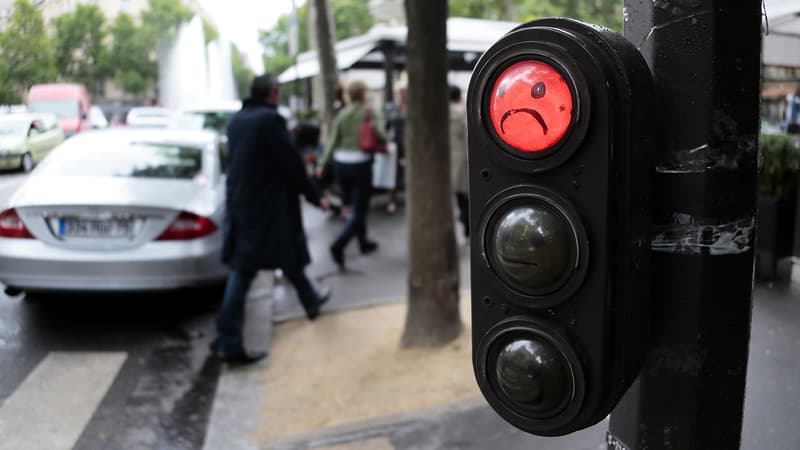An improvement behavior, but is still a lot of effort to make. This is the evaluation that can be applied to the French drivers, according to the 15th responsible behavior barometer published by the Vinci Author Foundation, the day before the long weekend of the ascent, with a strong expected traffic on the country’s roads.
This vast survey* evaluates behavior in 11 European countries and, therefore, makes it possible to compare between neighbors.
Insults and horns, French specialties
In this 2025 edition, 87% of French drivers declare, for example, be afraid of the aggressive behavior of other drivers, a figure that decreases a point compared to last year, but remains significantly higher than the European average, to 83%. First observation, therefore, a fairly hostile atmosphere in general on the roads of the continent … and more particularly in France.
But the French are distinguished more in other “specialties”: 63%, therefore, admit to insult other drivers, going down four points compared to last year, but much higher than the European average, with 50%.
The same observation in the strokes of the “premature” horn pointing “to drivers that bother them”, that 54% of French motorists practice, compared to 47% in Europe.
On the other hand, the French are in the European average about the fact of deliberately “paste” the vehicle of a driver that bothers them, at 30%. They are also less likely to leave your vehicle to explain with another driver, only 13% of motorists, compared to 18% in Europe.
Trivialized speed
More surprising in a France covered with radars, 9 out of 10 drivers say they exceed limitations in a few km/h, a slightly higher figure than the average in Europe, at 85%.
More than 2 of 3 French drivers (68%) also recognize that they do not comply with security distances, compared to 56% in Europe.
On the other hand, we will welcome less driving followers in the middle of the highway on the road, while the correct form is free: 43% in France against 51% in Europe. The same goes for the fact of duplicate on the right: 27% of the French are delivered against 34% in Europe.
Driving distractions, a light better
Black point of driving behaviors In recent years, the evaluation is quite mixed in distractions, with “a decrease but always very high.” 75% of French drivers use, for example, their smartphone or “schedule their GPS while driving”, a three -point figure compared to last year and near the European average, with 77%.
61% of the French call driving, four points fall compared to last year, but seven points go up compared to 2018. Fortunately, more than one driver in two (55%) does so through Bluetooth and the integrated vehicle system, which remains authorized, but not recommended because it is likely to reduce the concentration during driving.
29% of motorists also recognize the sending and reading of SMS or emails through driving. This is also possible in recent vehicles in dictates and voice synthesis through driving assistants, particularly through Carplay or Android Auto. But this is still unchanging and, therefore, does not necessarily replace forbidden use, such as consulting and reading messages directly on your phone.
Finally, 84% of drivers admit that they can leave the way for more than 2 seconds: 130 km/h, this represents the equivalent of 72 meters “blind” traveled.
A safety corridor still very little known
On May 14, near Roissy Airport, a truck hit a vehicle from the Ile-De-France roads (direct), which was in the emergency stop band, causing the death of an intervention agent, while his colleague was seriously injured.
The opportunity to remember the good reflexes with, in the last Vinci barometer, 64% of drivers who do not systematically apply the security corridor rule and (alone) 14% who say they do not know this rule.
In the Autoutes Vinci network, the press release recalls, 20 vans have already been beaten since the beginning of the year, one per week.
*Survey conducted by Ipsos with 12,403 people in 11 European countries, this vast annual survey prepares an inventory of behavior and representations of Europeans while driving.
Source: BFM TV


